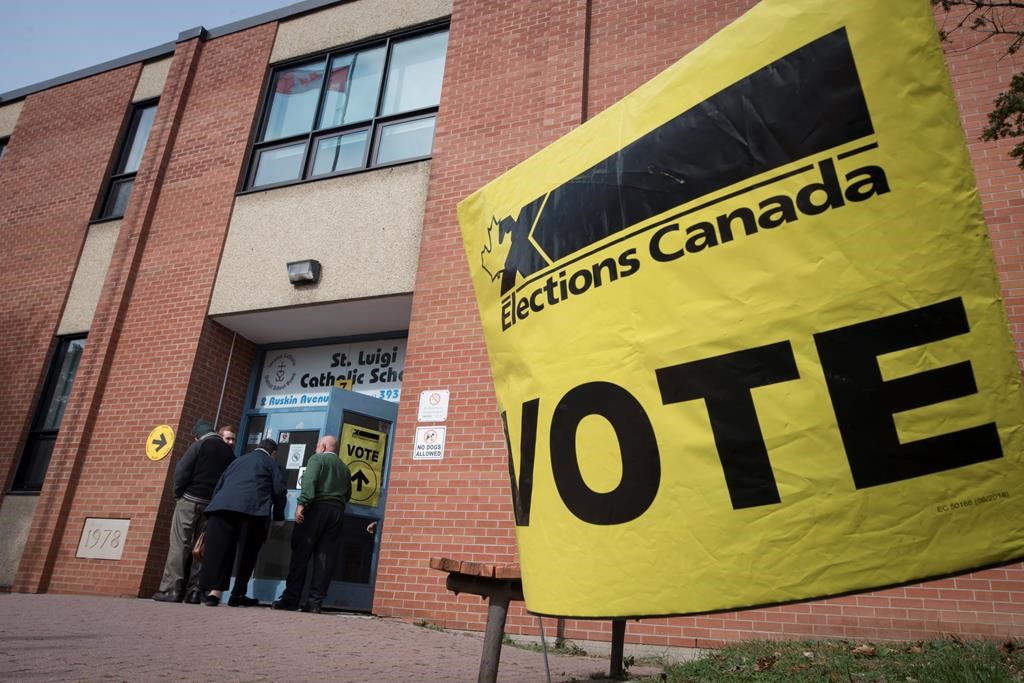The number of third parties registered for the federal election increased by roughly one third this year compared to the last time Canadians went to the polls.

According to the listing of registered third parties published by Elections Canada, there were a total of 147 such entities involved in the 2019 federal election campaign – an increase of 28 per cent from the 115 registered for the 2015 election.
Both are marked increases from the tallies in the previous four federal election campaigns but it’s not yet clear what’s behind the shift.
READ MORE: Trudeau’s slim victory could teach Democrats how to win in 2020, ex Obama envoy says
Natasha Gauthier, a spokesperson for Elections Canada, said it’s possible the increase compared to 2015 could be tied to the changes made last year by the Liberals to the rules governing third-party registration, but it’s too early to say for sure.
“We will be doing a more complete analysis in the coming weeks and months. However, it’s not unreasonable to attribute the increase to a combination of the new regulated pre-election period as well as the expanded range of regulated activities,” she told Global News.
“That final number of registered third parties includes everyone who registered since the start of the pre-election period on June 30.”

Elections Canada registration data shows that in contrast to the 147 and 115 groups registered for the last two federal elections, there were just 55 registered to advocate in the 2011 campaign, 64 in 2008, 80 in 2006 and 38 in 2004.
The agency, which is non-partisan and reports directly to Parliament, is tasked with conducting and monitoring Canadian elections as well as the parties involved in them. As part of that role, it registers and maintains data on everything from the finances of political parties themselves to voter lists and third parties.
Officials there have maintained public registries of all registered third parties since 2004.
READ MORE: Twitter announces ban on all political advertising
Amendments made by the Liberals to the Canada Elections Act late last year expanded the rules in place around partisan activities and partisan advertising by actors that are neither political parties nor their candidates, both of which are already limited under the law.
Those rules are all aimed at levelling the playing field and limiting the role of big money in Canadian elections.
The changes to the rules required third parties to register with Elections Canada if they spent more than $500 on partisan activities or advertising during the pre-election period or the campaign period itself, and also banned the use of foreign funds by third parties.
As a result, any advocacy group that spent above the limit to do things like promote or oppose a political party or candidate — for example, through social media or get-out-the-vote campaigns — between June 30 and Oct. 21, 2019, had to be registered with Elections Canada and comply with the agency’s spending rules.
The same goes for advertising promoting a specific candidate or party, or issues associated with a particular candidate or party during the campaign period.
The list of registered third parties changes from election to election — so while there were a total of 32 more registered third parties in 2019 than in 2015, there were 108 third parties registered in 2019 that were not among those registered in 2015.
Those include the Canada Proud network of right-wing advocacy groups, the Abortion Rights Coalition of Canada, the National Firearms Association, the Canadian Coalition for Firearm Rights, Canadian Doctors for Protection from Guns, Catholic Conscience, the Coalition for Gun Control, Poly Remembers (a gun control group organized by survivors of the Ecole Polytechnique massacre), RightNow (an anti-abortion group), and North99 (run for former Liberal staffers).
A review of the list shows a strong focus among the 2019 third parties on gun laws and abortion as well as on climate change, real estate, diversity and social inclusion, and industrial concerns from those in the manufacturing and agricultural sectors.
Conrad Winn, a professor of political science at Carleton University, says there have been repeated polls and surveys suggesting growing dissatisfaction among citizens with politicians and that could be part of why more third parties are registering to be involved in campaigns to advocate for their own interests.
He stressed that it’s too early to say for sure what is behind the increase or whether it suggests evidence of a growing attempt by special interest groups to exert influence in political campaigns.
“We can’t be sure because we’re only talking about one country,” he said.
At the same time, Winn said he thinks there is a lack of understanding about the role third parties can play in political campaigns.
“It starts with the public not really caring and not paying a lot of attention,” he said.
“Voters end up in election campaigns making instinctive, somewhat impulsive decisions.”




Comments